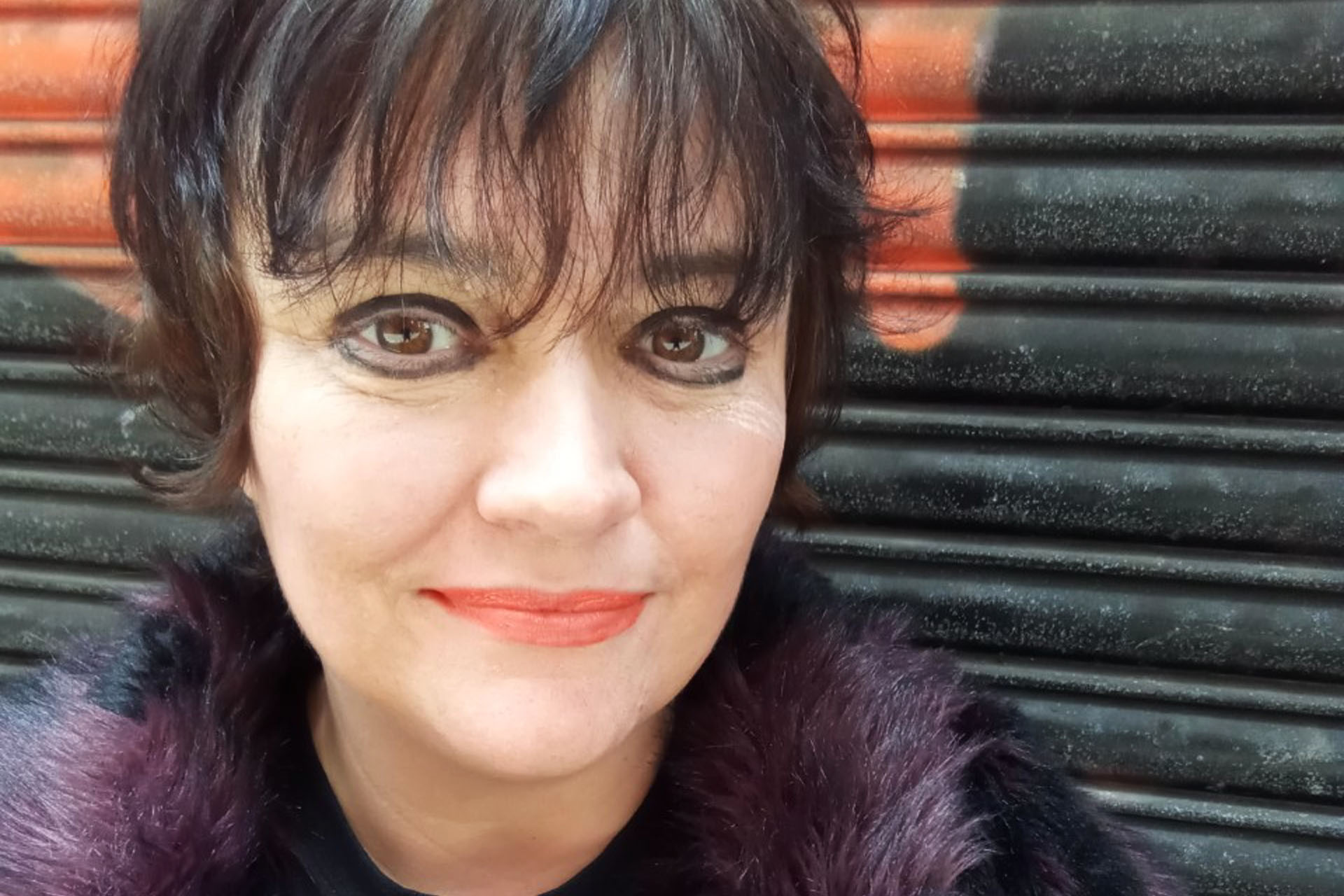We recently caught up with alumna, Sarah Crewe, to find out about her time at Kent and her poetry collections.
Where were you before Kent?
I did my undergraduate degree at the London College of Communication, University of Arts London, graduating in 2004. I’ve been out of academia for 12 years, so a big gap.
What made you decide to do your Masters at Kent after such a long time?
I’d been a practising poet for about four years before I started the Masters by Research (Poetry) at Kent, and I thought it was time to tighten up my entire practice and embody what I wanted to do. I never had the chance to have that proper kind of feedback from the supervisors before – constructive criticism and feedback – which allowed me to shape a sequence exactly as I wanted it. It really felt like a turning point creating the poems for the first book, ‘floss’. Prior to the MA, I’d done about six or seven pamphlets but I’d never done a full collection before until I did the Masters at Kent. The course and the tutors gave me the confidence to compose a full collection.
I’m not sure if I hadn’t done the MA at Kent, if I would’ve ever got there to develop a full collection. I’ve done previous manuscripts that were knocked back, but I look back now and I’m really thankful they were because they were terrible! The course gave me the ability to fully shape a manuscript and hone in on what exactly I wanted it to be about. The skills I picked up were priceless.
What was your first collection? Did you have something in mind before you started the course or is there a particular area that you were interested in?
When I first started composing pieces, it was very vague – I hadn’t done a dissertation since 2004! I remember my first supervisor meeting, I had all my notes – we had a great discussion about how to shape it all into a proper essay. I knew I wanted working class women psychogeography to be the focus of it, but I didn’t really have the confidence to articulate that it was what I wanted to pursue. I loved the work of Geraldine Monk and Maggie O’Sullivan, and I wanted to be able to revolve it around them.
I feel like we’re in the very early stages of working class women’s voices being heard in poetry and these two incredible women are trailblazers of this. I used to think ‘No one really wants to hear what I have to say. No one wants to hear a working class woman with a funny accent.’ Even though my second collection has come about following my time at Kent, it’s very much a continuation on the theme I developed during my Masters.
Since graduating from Kent, what have you been up to?
I was under no illusion that this would be a full-time career, but it’s nice to be able to have that focus as a poet. After my first book, I tried different things. Between by first and second collections, I started doing a music scene, called Maisy. It’s totally DIY, where I created a music video and a poem about a book, or a band, or a theme.
What would be your advice to someone who has dabbled in poetry, and is thinking about how they can take things to the next level?
I would advise that if you have a subject in mind that you want to write or create about, it is really important to read around the subject area – might not necessarily be other poetry books, but just immerse yourself in the topic. Get different perspectives. Expand and broaden your remits.
How did your second collection come about?
My first book was steeped in history – about my ancestors and social housing, and how they all fell together. The second book, ‘garn’, is modern day, set in the present. What is is like to be a working class woman in the arts now? What’s it been like for the past twenty years or so? With that in mind, I’ve used Eliza Doolittle from Pygmalion and brought her into a 21st century context.
Why did you choose Kent?
I’d actually done some reading of the Creative Writing series, and had a chat with the tutors. Every time I visited the University, I just loved it. My postgraduate experience was everything I hoped my undergraduate would be. There was so much more creative freedom, support, backing for what I was doing. I had the dream team of tutors including Dr Dorothy Lehane – to have all of those members of staff in one School is really special. When I was looking at other universities, and other Schools of English, I was keen to see what the tutors were publishing. At Kent, the tutors are well versed and published in the sector so great mentors to have.

